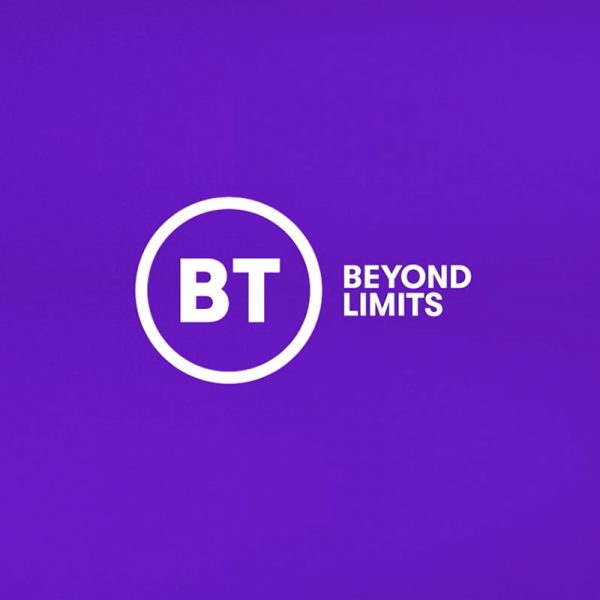Broadband ISP BT Sees Peak UK Network Traffic Hit 25.5Tbps

The CEO of BT’s Consumer division, Marc Allera, has revealed that last night’s live streaming of Premier League Football matches, on Amazon Prime Video, pushed internet traffic on their broadband network to its “highest peak yet” of 25.5Tbps (Terabits per second) – that’s about 12% higher than their previous peak set in December last year.
The news shouldn’t come as much of a shock to our readers because TalkTalk and LINX have already reported related peaks, which we covered this morning (here). New peaks are being set all the time because data consumption is constantly rising, which is nothing new and the growth trends being seen today are similar to what we saw a decade ago.
All ISPs have to adapt to this, which is partly why consumer broadband prices are constantly rising, although this does have to be weighed against the fact that data capacity tends to get cheaper over time (i.e. more bang for your buck, as the Americans would say). On the other hand, if we were to look at connection speeds, then most of the UK actually gets more Megabits today per £ than we ever did before.
Advertisement
Most ISPs also employ sophisticated Content Delivery Networks (CDN) and systems to help manage the load from such events, which caches popular content closer in the network to end-users (i.e. improves performance without network strain). This in turn lowers the provider’s impact on external links and helps to keep costs down.
However, despite all of this, Marc Allera also takes the opportunity of today’s data peak to have yet another dig at the rules around Net Neutrality (i.e. ensuring an open internet and preventing unfair restrictions against its traffic), albeit without spelling out precisely what BT wants to see changed. Until BT are willing to be open about what they want to see changed then we’ll remain highly sceptical of their vested interests in this field.
Marc Allera, BT Consumer CEO, said:
“Of course, we invest to ensure our networks can cope with this but as demand grows further this decade we can see potential problems coming down the line. That’s why we’ve taken a stance on the need to review the rules that govern the approach to the internet, commonly referred to as ‘net neutrality’. These rules, first introduced earlier this century, were designed to prevent any discrimination of traffic, in particular that might limit smaller players who were unable to compete with the largest.
Now, almost 20 years on from when the term was first coined, there has never been more of a need for a fair, transparent and open internet. But the principles that were established to deliver that are no longer working for everyone in the ecosystem. The net is not neutral and becomes less so yearly; a quick glance at our own network data suggests that at peak times up to 80% of traffic – and therefore capacity on our network – comes from just a handful of companies, some using models that can find and consume every last bit of space. It’s hard to argue that that doesn’t unfairly impact other users of the internet.
We currently build huge excess capacity to support these inefficient processes. Capacity for content is not infinite and the exponential growth of data will, in the future, pass what we can reasonably be expected to build – or indeed expect consumers to have to pay for. What are occasional management issues now will become much bigger and more frequent challenges later in the decade impacting everyone.
Identifying this fast-approaching challenge is the easy bit. Tackling it is far harder. Even identifying the issue causes some detractors to claim these are old arguments raised by network operators and we haven’t moved on. I don’t see it that way at all. Faced with realities of an internet that is becoming increasingly filled with higher quantities of (and higher-resolution) traffic, and becoming squeezed on capacity as a result, we’re trying to find solutions.
Ironically, it’s the defenders of the status quo who are resurrecting arguments from the past, ignoring the reality of internet economics and the problems that lie ahead. Equally, it’s not in the interests of any ISP – however new – to operate inefficient traffic management; their investors should be asking serious questions if they did.”
We’d certainly be curious to know precisely what nasty things BT can see “coming down the line,” as these are crucial points of context. But the fact that Allera highlights how up to 80% of traffic can come from “just a handful of companies” (nothing new for the internet) may signal that they’re back to their old play book, which was also used when first opposing Net Neutrality in 2010/11 (such rules were later enforced in 2016 as part of new EU regulations).
Some bigger ISPs would like nothing better than to effectively shift some of their costs on to content providers, rather than the normal approach of simply charging end-users for the data they use. The risk is that those content providers who refuse to play ball could then find their services being degraded or blocked by such ISPs, which could one day become the foundations of a walled garden style internet experience.
Advertisement
At this point it’s worth remembering that demand for faster broadband and mobile data services would not exist without internet content providers (e.g. YouTube, Netflix, websites etc.). Some ISPs may complain that the increase in related data usage from these raises their costs, but that’s arguably the nature of the beast and should continue to be reflected in the prices we all pay as end-users.
Lest we forget that content providers also have to pay for their links to the internet, just as we pay a fee to the dedicated server company that hosts ISPreview.co.uk. However, there are certainly some areas where the rules around Net Neutrality may need to be tweaked, particularly as we see greater convergence between fixed and mobile broadband networks, as well as wider use of cloud networks and 5G network slicing.
Ofcom are currently in the process of reviewing the existing Net Neutrality rules, and they expect to publish their initial findings next Spring 2022 (here). Hopefully, in the process of doing that, they don’t lose sight of the reason why such rules were introduced in the first place.
Mark is a professional technology writer, IT consultant and computer engineer from Dorset (England), he also founded ISPreview in 1999 and enjoys analysing the latest telecoms and broadband developments. Find me on X (Twitter), Mastodon, Facebook, BlueSky, Threads.net and Linkedin.
« Virgin Media O2 UK Suffers National Outage of Pay TV Service UPDATE5






















































Oh look, BT Retail’s paying customers request content, BT deliver it via Content Delivery Networks meaning only their internal networks need to carry it, BT expect the content providers as well as their customers to pay.
Get lost. If it were coming across IP transit that’s one thing, given most of it will be coming from on-net CDNs or peering not that interested.
Not a coincidence that the operators complaining are among those with the most restrictive peering policies. They’re trying to use their customer base to rinse money from other customers.
Getting paid by those requesting a service and those providing it. Good game if you can play it.
“only their internal networks need to carry it” – CDNs take the content only as far as a ~dozen cities, ISPs have to cary it as unicast traffic from those few3 sites to ~1000 Openreach handover locations, that is no trivial or cheap network to construct.
“Not a coincidence that the operators complaining are among those with the most restrictive peering policies” – BT and most large ISPs peer with ISPs many times smaller than themselves and all major content providers. There is no point attempting to control content via restricted peering, the traffic would arrive over the far more expensive paid-for transit link instead.
“There is no point attempting to control content via restricted peering, the traffic would arrive over the far more expensive paid-for transit link instead.” – there is a third option; ISPs could get paid by content providers to provide transit. The bigger ISPs try to pull this off via restricted peering policies. This is why I left Zen – they refused to peer with a CDN which had an open peering policy, presumably because they hoped to engage in paid peering with them instead.
‘CDNs take the content only as far as a ~dozen cities, ISPs have to cary it as unicast traffic from those few3 sites to ~1000 Openreach handover locations, that is no trivial or cheap network to construct.’
Indeed which is why most don’t they pay others. They then pay those others per Mbps per month.
Sky and TalkTalk both seem okay with building out their own networks and not getting paid by content providers though, and BT Consumer have far more economies of scale.
If BT Consumer are struggling on profit margin the solution that comes to mind is to stop using a BT Wholesale product made for them and go around BTW.
Any profitability issues are the result of BT Group forcing BT Consumer to prop up BT Wholesale by buying Broadband Complete.
It’s not like money really changes hands here though so I’m not sure what the problem is. Telcos be telcos. When you are made to look the bad guys by Liberty Global you know you’re doing something wrong.
‘Until BT are willing to be open about what they want to see changed then we’ll remain highly sceptical of their vested interests in this field.’
They want Netflix, Google, etc, to pay them. They want their customers to pay them for Internet access and they want to charge the companies providing services to their customers for the privilege of connecting to them.
They are clearly profitable with the current levels of demand and existing payment arrangements. I’m not sure what their problem is beyond greed – they want to make more money and due to the competitive environment in the UK can’t raise prices on their own customers.
A lot of ISPs want companies like Google Netflix and Facebook to pay up even abroad. An example is when squid game launched and ISP in South Korea planned to sue Netflix over the High data usage during that time.
SK Telecom. Having refused to use CDNs to reduce their costs. You’ll forgive me if I have little sympathy for a company that decides on a particular business model and goes to court to get others to subsidise it.
CDNs help, but not as much as you might think. ISPs can get content over peering, or can host it in a core site, but that core site will only be 1 or 2 backbone hops nearer to their customers than the peering, the real cost is in driving that unicast traffic out to 100s of edge sites and over the interconnects into Openreach and other Altnets. The more traffic, the more ports need to bought on ISP kit and from the access carrier. Moving the source from a London peering to a Manchester CDN doesn’t change that cost at all.
@Mark
>90% of internet traffic comes from private peering. Granted, much of that isn’t via distributed, ‘on-net’ caches deep inside the ISP network, but via direct connection to macro regional nodes. But it’s only a romantic idea that public peering contribute much to popular content delivery at scale with major ISPs.
That being said GCP and AWS are probably the most prolific for on-net caches within ISPs.
In respect of people’s concerns about net neutrality. More ISPs should be open to facilitating on-net caching, it’s mutually beneficial and helps the internet scale. Sure we can all talk b*ll*cks about Net Neutrality, but cloud computing enables that access irrespective of public peering. Constraining private peering, forced defining of that interconnect is a waste of time, IMHO.
The thing is BT will saying they’ll not charge the customer more but will then charge the content provider who will then increase their bills and charge the customer more.
Also aren’t the CDNs at cost of the content provider? Ie Netflix pays for their CDN to get installed on BTs network.
I also get that live sports will be streamed across the internet as it’s live.
I thought live content was multicast, so it’s 1 stream to many, so live content even if everyone is watching it shouldn’t be a burden over the wider network, it is essentially broadcast, or do I have that wrong?
@Phil, yeah it would be 1 stream coming from Amazon but you have multiple people tuning in to the multicast so there is still bandwidth need to get from BTs core to the consumer and I think this is what BT are talking about the usage on their network
It’s all unicast. No multicast in use. Was more trouble than it was worth.
It is mainly unicast. BT’s own TV set top box does use multicast for live BT sport, but anyone using any other device, or watching any other content, is consuming unicast. The big peaks generated by Amazon will all be unicast.
why was multicast more trouble that it was worth?
Bandwidth relatively plentiful and the vast majority of the viewing VoD or adaptive streaming per client.
“at peak times up to 80% of traffic – and therefore capacity on our network – comes from just a handful of companies”
… and 100% of it is delivered to *BT’s customers* who *pay BT* precisely for the service of delivering Internet traffic to them.
What BT are really saying is that they want a slice of the content pie. They haven’t been able to succeed through owning their own content (BT Sport) so now they want a slice of everyone else’s.
Fortunately, the competitive marketplace in the UK means they are unlikely to succeed. Even if BT were permitted to throttle Netflix (say), then customers would walk to other ISPs. And if *all* ISPs decided to throttle Netflix at the same time, that would clearly be a cartel (and illegal).
The companies he speaks of pay their ISPs for upstream data. I pay BT for downstream data. This is how it works. It is not difficult.
So if it’s already 80% saturated and they keep trying to sign up more customers and over selling, does that mean everyone is going to be getting adsl speeds? Shouldn’t they upgrade equipments with expansion in mind for future use? What’s the point of full fibre, if everything is going to slow down because their equipment is reaching the limit?
Forcing other company’s to have to pay to access your network is a slippery slope, that could quickly erode the open access everyone has to internet.
Worse case all non BT business and external clients would have to pay to access BT users. Why would BT just stop at Netflix. The other 20% of non-charged other business is still a large slice of pie to go after, so I wonder how long it would take BT to start charging them.
BT have already been paid for the internet connectivity by there clients.
The problem for BT and others is that Amazon is becoming such a large content provider on top of its other activities. Add to that the anti BBC agenda play by the Tories, and it is easy to see Amazon or others taking on other popular sports coverage (e.g. Saturday night highlights).
This will leave BT and other big UK based ISPs as essentially providers to mighty Amazon, a bit like a T-shirt manufacturers.
BT’s issue is it can’t outbid Amazon, as the Tories and their old ladies complain if their base phone bills cost more. It’s the same for the BBC and its licence fee. What the Tories and their old ladies want is a Pay As You Go model.
However, much of industry prefers a subscription type model. Amazon being multinational can easily outplay the mostly UK based and regulated BT or BBC.
BT and other ISPs Providing Internet Service rather than being content providers too?
Not sure I see the problem. Regulation can and will control what Amazon can buy.
If BT can’t compete as a content provider the next option is to move back to being a delivery platform.
On the one hand a very few ISPs, basically incumbent telcos, want content providers to pay them to access their customer base, on the other they use those providers’ content as a selling point.
I’m lost as to Mark Allera’s problem. Openreach charge for capacity and congestion isn’t their problem as long as they stick to their capacity planning. BT Wholesale charge per Mbps per month. That leaves BT Consumer. If he isn’t happy with how they are competing with others buying direct from Openreach it’s time to look at the Wholesale products Consumer are forced to consume. They force Consumer to pay Wholesale for a specific set of products to pad out Wholesale’s apparent revenue. This is neither the problem of the content providers or their customers.
There are two costs for Broadband, the fixed cost of getting a pipe to your home, hopefully fibre, and the cost of carrying the traffic you consume. The more we consume, the larger the core/distribution networks of the ISPs (the fixed cost is the Openreach bit and that remains a similar cost as that is basically fibre in the ground). If someone does not watch much streamed content, why should their broadband go up to pay for their neighbours that do? Isn’t it fairer if content providers pick up an extra charge and pass that on to their customers, so that those that use more pay more? If we had unmetered electricity would you really want to be paying more so your neighbours can charge their three cars when you only had one? Nobody wants metered broadband, charging more for the heavy content generators is a simpler way of spreading the costs to those that drive it.
Metered broadband would be the fairest way however that’s ignoring that many ISPs aren’t paying per Mbit for this capacity.
Whats your best guess as to the price of a bit? It’s not generated in the same way as electricity, that’s why metered usage feels like cheating. This has been covered a lot before.
BT sell you a rated speed in mbps, and they need to design their network to support the possibility of X% of their users being able to attain that speed at any time.
If they take X too low, they can sell a cheaper service, but run the risk of not being able to cope when there’s a big football match. If they take a high X, their network is more resilient but it costs more.
Charging per bit wont stop everyone from tuning in at 8 to watch the football match, so it’s the wrong tool which ISPs often deploy only for extra revenue, not to address congestion.
Once they have designed their network to support a high X% concurrent peak usage, the costs are largely fixed whether or not the capacity is utilised. This is why ISP fees are a fixed subscription: Mark up the cost of maintaining your network to add some profit, and then split that cost across everyone who has access.
If your costs go up, you raise the costs to the users. The costs don’t rise as fast as their annual price rises suggest though, because technology improvements constantly make the price to deliver more and more mbps cheaper and cheaper.
Unsure if you’ve seen but reductions in cost per bit have been at best minimal recently and likely offset by increased usage per customer.
Availability constraints alongside that improvements in cost per bit had slowed hugely anyway have reversed the trend somewhat.
The other stuff I’m aware of but was responding to the comments about ‘fairness’. You may be interested to know that BT Wholesale, TalkTalk and Zen charge their wholesale customers based partly on usage.
“Once they have designed their network to support a high X% concurrent peak usage, the costs are largely fixed whether or not the capacity is utilised. ”
Yes, and if Internet usage levelled off the ongoing running cost per bit would be low. ISP costs at the moment are driven by usage doubling every 2 to 3 years, meaning that ISPs have to double the capacity of their networks every 2 to 3 years, so it is this capital investment of kit at 100s of sites that needs to be funded. (Note this does not apply to Openreach, their costs remain similar once that fibre is in the ground no matter what the usage). ISPs have survived this long as electronic costs have come down to match rising utilisation, but as the earlier poster noted, this is not a guaranteed position. If Amazon would could fill the post office lorries for no extra cost, and stamp prices went up to pay for some people to get lots of Amazon deliveries, would we all be OK with that?
Stop comparing it with trucks. Its not the same.
Royal mail bills amazon per parcel by volumetric weight because that’s how that business model works. Royal mail doesn’t bill amazon and amazons customers.
ISPs bill their customer by mbps because that’s how the business works. ISPs bill digital giants lije Netflix and also bill netflixes customers because thats how it works. Each person pays to have a pipe of certain mbps. Once that’s paid, the ISP is contractually obligated to deliver those mbps to everyone they took money from. They can’t go asking for a cut just because one of their customers is very rich.
If the ISPs costs have risen, they should raise the price on their customers, which include Digital content providers. They cannot con us into believing that their cost structure is the same as the logistics business. There is an infinite supply of bits, and networks can carry those bits at or near designed capacity for very little marginal cost. The real expense is building and upgrading those networks. They charge recurring fees for access whether or not their customers transmit any bits and they are healthy and profitable too.
Except that UK ISPs don’t bill giants like Netflix, that is zero cost peering. ISPs can’t attempt to charge for peering as the content moves away entirely and arrives over expensive transit. As you say, that’s how the business model works. The falling price of kit has helped ISPs survive, but will that continue for ever? As content load increases the winners are the content producers who don’t see the full cost of the load they put into the network (the cost of building more network) and the customers that consume the content win too, because the extra network build cost of their consumption is shared with those that do not consume as much content. I guess you would say that if customers choose to turn up to an all you can eat buffet and only nibble a starter that is their choice (sorry, new analogy..) but metered Internet is not coming back (surely!?) and so something else is required to help level the playing field a bit and put more of the cost of huge content demand back onto the consumers and producers of that content.
No connect N15 3JU 2 days